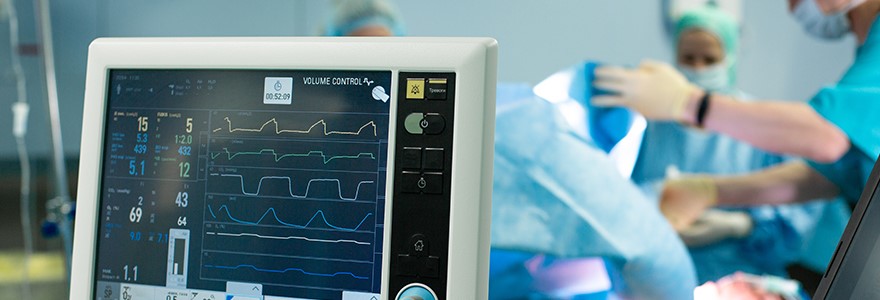Can Korea’s medical affairs teams overcome barriers to success?

Korea’s medical affairs market is seen to be one of the most advanced in the world. The Korean market has experienced consistent double-digit growth in the past five years and is considered the fastest-growing developed country by IMS Health due to advances in digital technologies.
EY Lifesciences has also ranked the country as the third largest pharma industry in Asia, with a forecasted growth of ₩2 trillion from ₩22 trillion in 2016 to an estimated ₩24 trillion in 2020.
In spite of such a strong forecast, the medical affairs industry is still facing growth challenges that can impede the sustainability of the industry in the long run.
What barriers is the medical sector facing?
- Upskilling the tech knowledge of medical affairs specialists
It is without a doubt that medical affairs specialists today require digital skills to remain relevant on the market. One needs to be equipped with extensive product knowledge and an in-depth understanding of diseases in an information-driven era. Medical affairs specialists need to be well-versed in generating and presenting high-quality scientific knowledge to the market and educating stakeholders about next-generation technological products.
According to Korea’s Health bill, pharma research and development (R&D) expenditure is currently at 24% of its national health bill. Whilst cost efficiency remains a priority, the Korean government is also trying to boost the pharma market with tax deductions and funds allocated to R&D initiatives in tech. The government is also promoting mergers and acquisitions to boost revenues, and offering training programs to those who like to upskill to sustain the competitive advantage of a strong pharmaceutical industry on a global scale.
However, as the medical affairs industry is still transitioning to the digital in Korea – training on machine-learning and artificial intelligence (AI) has been a long and arduous process. As such, return on investment (ROI) can only be achieved when medical affairs specialists become fully versatile and adept to new digital processes and service delivery.
- Hiring and retaining MSLs
Medical Science Liaisons (MSL) play a crucial role in the pharmaceutical industry. They are responsible for multiple functions including but not limited to:
- Overseeing the product lifecycle
- Ensuring that products are fully utilised
- Serving as scientific peers and resources within the medical community
- Functioning as scientific experts to colleagues
Given the required wide range of responsibilities listed above, it is often difficult to source the right candidate for the role. A study by IQVIA revealed that it takes on average four months to recruit MSLs in Korea. In a move to reducing the recruitment period, large companies like Novartis and GSK are relying on retention strategies such as implementing new MSL training programs that focus on conducting richer peer-to-peer relationships with their stakeholders.
Such training and coaching strategies aim to assist MSLs in developing a better understanding of their responsibilities and in doing so, increase their performance – all while establishing more credibility within the medical community.
Recruitment, on-boarding and training remain key areas of focus for organisations to keep up with talent competition globally. Medical affairs departments need to hire and retain MSLs with a more strategic mind-set that takes into consideration corporate objectives and patient needs, while providing scientific value to top doctors.
- Lack of collaboration between MSLs and HCPs
The primary purpose of the MSL role is to establish and maintain peer relationships with leading physicians referred to as Healthcare Practitioners (HCPs) at major academic institutions and clinics.
MSLs typically share scientific product or trial information with key opinion leaders (KOL), and connect HCPs with internal contacts for investigator-initiated trials. In some cases, they may even work alongside their company’s commercial team to develop a brand or other market strategies.
However, MSLs’ access to HCPs in Korea is currently declining in oncology. This is due to HCP’s changing needs for digital platforms such as webinars, mobile visual educational platforms, and virtual meetings. They also have a growing preference for receiving customised scientific information – an area which MSLs are currently lacking in.
A successful engagement is often based on an MSL’s familiarity with an HCP’s latest research and the ability to align study opportunities with clinical interests. Thus, MSLs will need to continue to expand their knowledge in order to meet the growing needs of its stakeholders.
Why is it crucial for pharmas to focus on growing a high-performing medical affairs team?
With digital technologies’ influence on drug development, companies can build a competitive advantage by reinventing medical affairs in a rapidly-changing pharma landscape.
The value that medical affairs professionals can bring – such as providing support to HCPs, payers, providers and key opinion leaders; will help the industry identify the best use for new pharma products. This approach can create a profitable cycle of production for pharma companies.
As medical affairs teams build long-term relationships with a variety of stakeholders, they benefit from continual market feedback and a more in-depth understanding of the market and patients’ needs. Experienced medical affairs professionals can link scientific and clinical results to patient outcomes, thereby adding value at every stage of a drug’s development.
When discussing a new drug development, medical affairs professionals can gather vital feedback on its market potential. This can in turn speed up the drug development process and meet patients’ needs at the earliest stages of diagnosis. The insights they provide can improve the ROI and create a strong competitive advantage by assisting in the design for more effective clinical programs in comparison to competitors.
Real Life Sciences can support your needs!
Our recruitment specialists at Real Life Sciences are well-versed in the ever-changing market trends in the medical affairs field and can provide you with first-hand insights on changes in the industry. Whether you are looking to hire the right talent, or a candidate looking to break into the medical affairs sector, feel free to drop us an email at singapore@realstaffing.com. For more industry-related information, do follow our Linkedin page for more updates!




